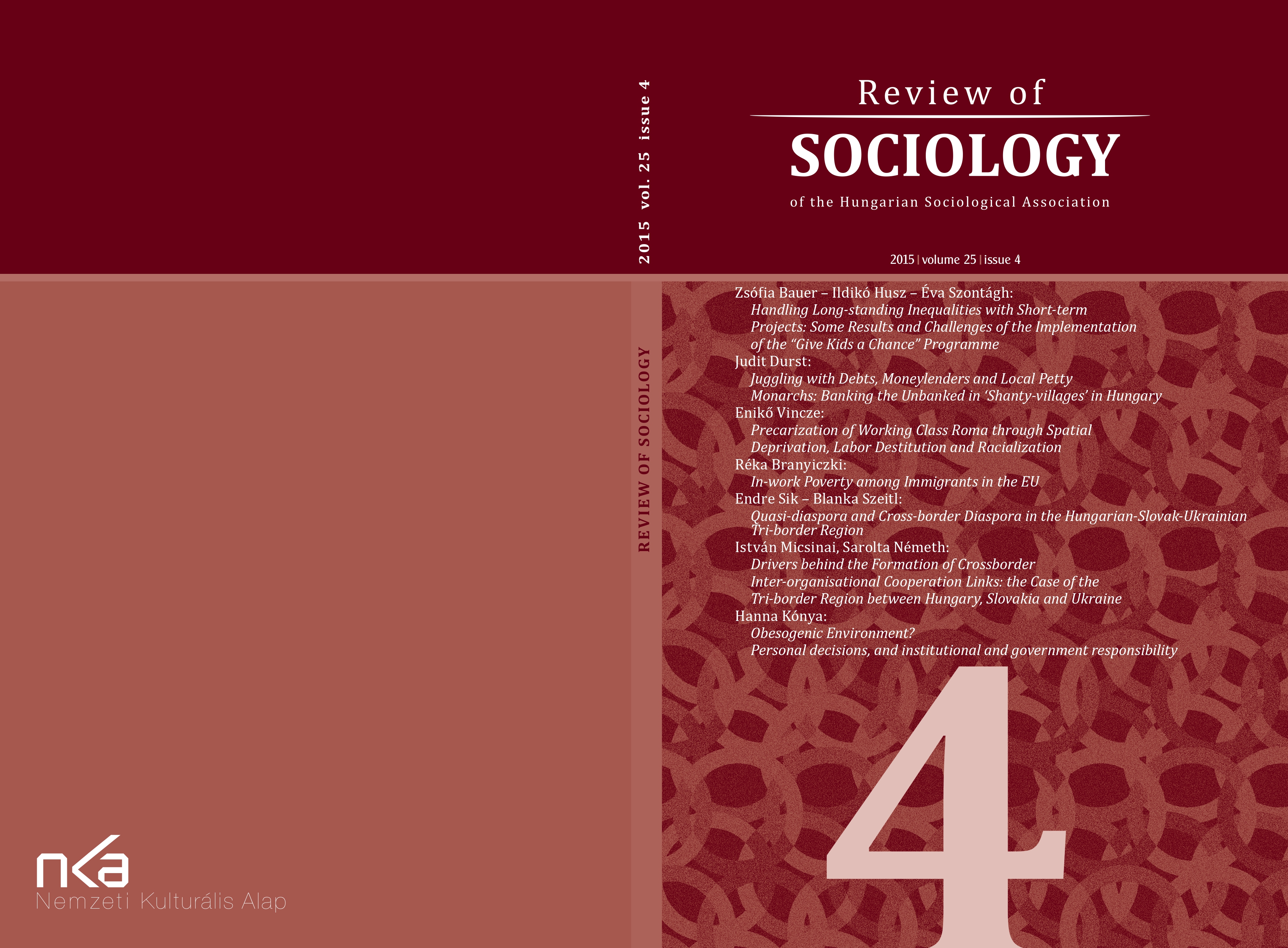Handling Long-standing Inequalities with Short-term Projects: Some Results and Challenges of the Implementation of the “Give Kids a Chance” Programme
Abstract
A set of coordinated programmes designed to improve opportunities for children has been implemented in 23 underdeveloped subregions of Hungary under the aegis of a long-term national strategy. Here we present the spirit and structure of the programme, analyse its outcomes, and address some future challenges. Our sources of data were national and subregional statistical data, project documentation, an online monitoring system and interviews with people working in the field. In the first phase we created four sub-clusters of component programmes according to the needs they focus on: biological and health; educational and cognitive; social and emotional; and recreational. The second phase of research investigated how the individual programme elements accomplished their goals of fulfilling unmet needs. Our results show Give Kids a Chance to be well targeted: it has reached a wide range of children and disadvantaged children have been over-represented. There has been fairly balanced involvement in elements of the programme concerned with the first three development needs. Overall, however, the initiative still faces a number of challenges: (1) deficiencies in child-oriented strategic planning; (2) uneven resource allocation; (3) imperfect handling of qualified staff shortages; (4) only partial improvement in the quality of existing services; and (5) lack of sustainability due to the scarcity of local resources and weakness of the non-governmental sector.





